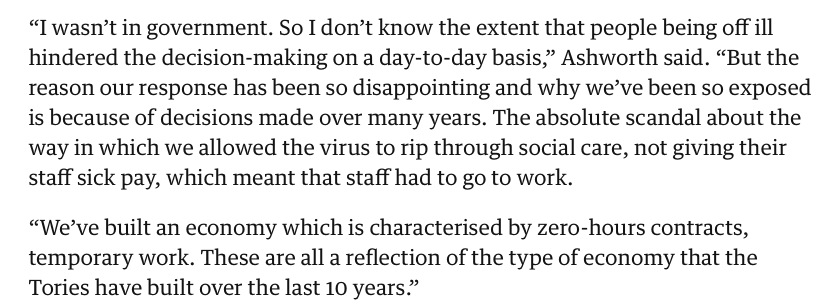
The ethnic disparity report is now online here, and well worth looking at (if you have a spare few hours). A few quick thoughts (1/?) assets.publishing.service.gov.uk/government/upl…
Whatever you think of the conclusions, this is clearly a serious piece of work. They have clearly sifted through a mountain of evidence and the final report is pretty darn hefty.
We're used to reports like this saying 'X is a disgrace and we will fix it' or 'this is how we will improve things'. But the central message of this one is basically 'it's a bit more complicated than that' - which obviously makes it harder to land.
The commissioners make a good case that the experience of different ethnic minorities in the UK is different enough in terms of life chances/outcomes that lumping them together as 'BAME' is indeed outdated.
(See for example the stats on educational attainment, or Asian over-representation in the senior ranks of the NHS)
They also make a good case that improving outcomes and opportunities more generally helps the most disadvantaged - see eg the section on the need for a longer school day to drive post-Covid catch-up. And they're clear-eyed on family breakdown as a huge driver of disadvantage.
Of the four core areas (education, work, health, crime) it's probably crime where they get angriest, especially about stop and search - very clear that there is a chasm between police and community about how it's used (also good stats on Black under-representation in the Met)
Lots of the overnight reporting presented the message as 'we don't have a problem, unlike Europe'. The actual report is more nuanced, but there are useful reminders throughout that other societies have these problems too, and generally have them worse.
Those who were always going to hate it will obviously hate it, not least because it deliberately rebuts the talk of structural/historical/institutional prejudices - ie its starting point is not that our democracy is institutionally racist, but that it is trying its best
In other words, the most important thing about this (on my gloss) is not the recommendations specifically but the general message. Whether it cuts through, we'll see...
• • •
Missing some Tweet in this thread? You can try to
force a refresh









